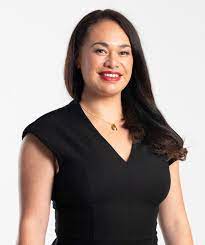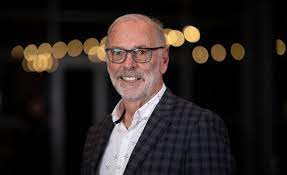So, I didn’t make it. Not even close, actually, which is disappointing although as the campaign wore on, I increasingly felt that I wasn’t going to do it anyway. More on that later. My post on Election Day morning detailed some of the issues I have with local body elections and the process, but as I said then, these are not moans and gripes about why I lost, but rather general improvements that would make for a more positive and engaging experience for candidates and voters.
One notion I have to challenge, which has been posited by many progressives in recent days, is that the low turnout was to blame for a swing to the right. Now, I have an issue with low turnout, and with the barmy system whereby the excellent NZ Electoral Commission isn’t used; but low turnout is not the reason Efeso lost in Auckland or Aaron Hawkins lost in Dunedin. Phil Goff won comfortably three years ago, on a similarly low turnout. And Tory Whanau managed one of the most comprehensive wins in ages, with a turnout of 45% compared to the usual 40% – hardly an earth-shattering increase.
There is this common trope that low turnout hurts the left more than the right, and that if only everybody voted, we would have progressive governments for ever hallelujah. Not true. Well, not always. Just think about it: voters who choose not to vote are likely to be the least politically engaged and the least ideologically committed. Assuming that they are just lost tribes of left voters waiting to come home is fanciful – they are just as likely to opt for the right. That said, the long queues in Auckland trying to cast a special vote were shameful. We need to change the system for reasons of equity of access. And the sinister efforts in the US to suppress voter turnout are aimed squarely at left-leaning voter blocs. But a higher turnout here might not have made any difference to the outcome at all.
On the other hand, I think rightwing commentators have been hasty in proclaiming this a “massive swing to the right”. This was not the case in Wellington, nor that bastion of wokeness, er (checks notes), Hamilton. And as special votes roll in, and the composition of the council changes, Auckland’s young tyro mayor Wayne Brown is likely facing a narrowly progressive council, and his voting power is no greater than theirs – looks like a fun three years in store up there!
So what happened, in the words of Hillary Clinton’s infamous post-mortem book? Firstly, this was a ridiculously competitive ward: eleven candidates! That’s more than for nearly every electorate race in the 2020 general election. Worse still, three candidates also ran for mayor. It seems clear that running for mayor as well as your local ward gives you a lift in your home ward. It certainly helped perennial also-ran Ray Chung. After trying haplessly so many times, his blunt, no-nonsense approach was a winning combo this time – to give him his due, he could rattle off figures in candidate meetings about what he considered wasteful spending.
Also, to the surprise of many, the legendarily low council approval rating of 12% did not lead to a bonfire of incumbents. Only one incumbent lost her seat – the excellent Jenny Condie. That was another blow to wannabe insurgents like myself. It seems as though red/green voters cleaved to the safety of the Labour & Green brands, while the committed NIMBY / boomer vote just piled up in Chung and Calvert’s column. I no doubt picked up a lot of 2nd and 3rd preferences, but they are hopeless if you are too far behind on 1st preferences, as I was. The amazing transferable powers of STV are really overstated. In most STV elections, the leader(s) on first preferences usually win, unless it’s super close.
Finally, in what was a fractious campaign, I simply got squeezed. My team of canvassers were excellent, but far fewer in number than what Labour and the Greens could muster. My strongest skills – public speaking and debating – shone through at the candidate meetings. Unfortunately, few undecided voters attend these meetings. And that’s that. But I enjoyed it, and learnt a lot of ideas for TOP going forward. What’s that saying they tell you at school? It’s not the winning, it’s the losing that counts!


Hi Bob. Sorry to have learned you didn’t make it.
Just on Ray Chung’s rattling off figures about inefficiency, the specific time I saw him do this in person was at the Ngaio Town Hall candidates meeting near the end of the campaigns. In it he gave an anecdote about new furniture being disposed of when the council moved buildings. Immediately after this another candidate (Diane Calvert I think) got up and calmly explained how it was a completely wrong description of the facts, and what really happened.
Maybe Ray still saw himself as benefiting somehow from having said it, and perhaps he did. To be honest when he says that sort of thing in another forum, like the multiple flyers we got in our letter box, it’s less likely he’ll be critiqued and challenged in front of everyone who reads it.
I walked away wondering if this was the 30th time that Ray had brought up that anecdote, and the 30th time that Diane or someone else had calmly corrected him. As someone who might have attended 30 similar meetings, can you shed some light on how much repetition like this happens for the audience’s benefit even when candidates know what’s coming?
Sorry if you’ve already talked about this and I’ve missed it.
LikeLike
Oh Ray was very much the stuck record! He would regurgitate the same spending ‘facts’ at all the meetings, and despite pushback from Diane (to her credit) and the progressive candidates, it obviously didn’t hurt him at the polls.
That said, he will be part of a rightwing minority on council for the next triennium, so his fury at ‘council waste’ should be largely impotent!
LikeLike
Ah, thanks for clearing that up. I was a little demoralised to see not just that he was elected, but also that he was elected ahead of everyone else and very nearly on the first iteration. I’ve nothing against him personally, but don’t feel confident about him as a councillor.
I know I live in a ward that has a strong concentration of people who share that sort of ideology, but I think I’d have understood it more if it were Diane getting elected in that way instead. I disagree with her on many issues whether it’s housing density or cost effective swimming pool spending, but I still have to acknowledge she understands the system and she works really hard when it comes to being out there and intensively communicating with people about council matters.
I guess everyone’s vote is their own. Nobody’s obliged to explain it and it has to be earned, but sometimes I still wonder if the general lack of discourse around local elections creates worse results. You can go to candidate meetings and try to learn about people’s trustworthiness and many other things. Most people I encountered, however, were still voting entirely on what candidates had written about themselves… whether it’s those stupid very short bios, flyers in letter boxes, or something like policy.nz which was still just a compilation of info candidates had provided completely subjectively.
LikeLike